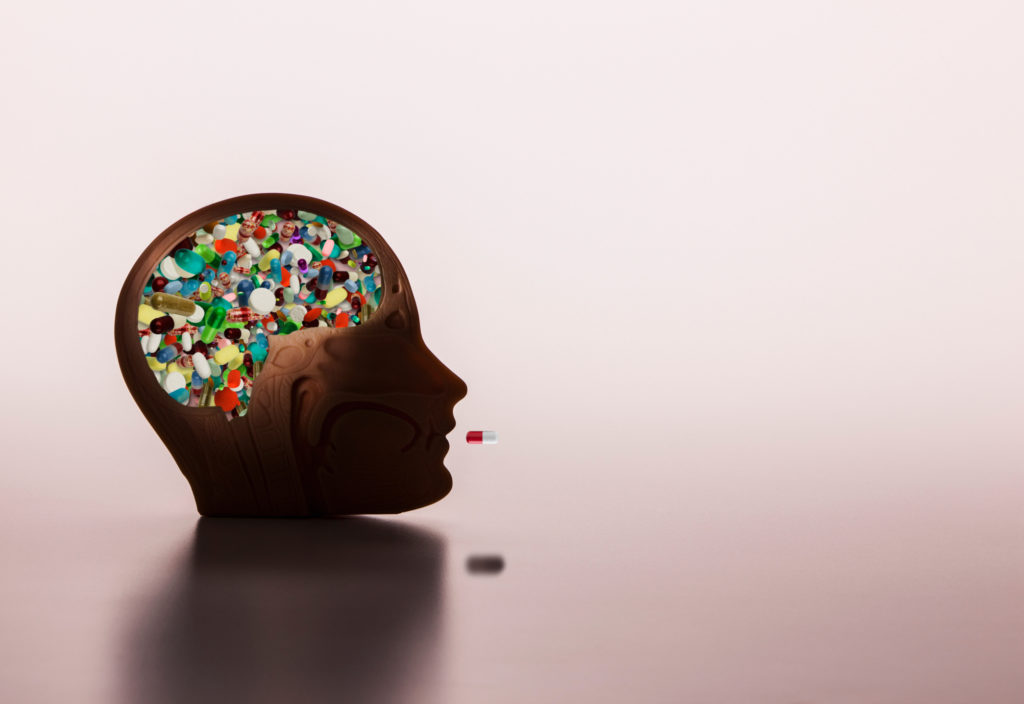I often ask patients the following question. Have you notice a decline in your memory or cognition over the last three to five years? Too often, regardless of age, the answer is flat out “yes” or a more unsure “I think so.” The next question is how are you sleeping?, which is inevitably followed by a resounding not well!
The Center for Disease Control (CDC), data indicates that 35 percent of Americans over the age of 18 are not receiving enough sleep. Twenty percent of senior citizens over the age of 65 are experiencing Mild Cognitive Impairment. As you will see in this article, Mild Cognitive Impairment is associated with sleep and cortisol function. Poor sleep at any age is a limiting factor for performance in all areas of life.

Hippocampus, Sleep and Your Memory
If one area of the brain (mesial temporal lobe) starts to shrink, early cognitive decline may result. Each area of the brain provides a window into various disease states, some are more widely known to impact dementia. The mesial temporal lobe contains a number of important structures, one of those being the hippocampus. The hippocampus is responsible for short term memory, converting short term memory to long term memory. The hippocampus can degenerate in response to excessive cortisol secretion, head trauma, hypoxia (lack of oxygen), chronic infections, and long standing chronic stress.
The circadian rhythm or what is referred to as your biological clock helps you fall asleep, stay asleep and feel alert and energetic throughout the day.
Your sleep/wake cycle is regulated by the hormones cortisol and melatonin. A lifetime of stress, poor relationships, work related problems, financial troubles, poor eating, and exposure to toxins all cause disruptions in cortisol secretion. Years of working night shift or poor sleeping patterns are great ways to cause changes in melatonin and cortisol balance.
For years I have indicated to patients that one of the first signs that we are losing health is the loss of good sleep.
If you wake up at 3AM wondering what you are doing up, this is one warning sign that your cortisol balance is compromised and could be your first sign of hippocampal or brain degeneration.
A day does not go by that I see patients who are having trouble sleeping. Here are some of the common sleep related complaints:
- Can’t fall asleep
- Can fall asleep but can’t stay asleep
- Wake several times per night (as few as 1-2x and as many as 10-20x)
- Wake up in the middle of the night and can’t fall back to sleep
- Night sweats and panic in the middle of the night
- My spouse is snoring
- My dog is making noise
- My legs are restless at night
- Sleep well but don’t wake up rested
The good news is that all of the above reasons for poor sleep can be corrected with the right understanding of the problem and sorting out the causes (including the dog barking)!. Looking at this another way, it is important for the doctor and yourself to ask the question, what is is that’s impacting your hippocampus?
Is stress causing excess secretion of cortisol, essentially frying the brain. When cortisol is constantly available in the brain it acts on the receptors of the hippocampus changing the way neurons or brain cells fire. Over time this wears them out and we have atrophy or degeneration. Stopping this process is possible and you don’t have to be a victim of dementia or early cognitive decline as long as preventative measures are taken. Most of the patients who seek my assistance are not past the point of no return.
Many have been struggling many times for decades, yet there is still an ability for healing to occur and restoration of sleep and memory. Some, are showing damage to the brain structures in the form of atrophy – think loss of muscle mass- in this case loss of brain mass. When this happens there has usually been severe stress, poor diet, and or environmental exposure to a biotoxin like mold. The reason they are unable to get better is because the doctor’s are telling these patients, you are fine. Take this sleeping pill, anti-anxiety medication, and you will improve. Or worse, “we don’t know what’s wrong with you, come back if things get worse”. This approach only delays appropriate treatment.
Memory Loss – The conventional approach is failing!
Clinical interventions that are not showing promise over the last thirty years are pharmaceutical based, while holistic, environmental and lifestyle interventions are actually leading the pack when it comes to memory.
As mentioned earlier, memory is a function of the hippocampus. When the hippocampus burns out, loss of memory follows. This means that we need to pay close attention to the signs of memory loss early on and not just chalk it up to some of the common excuses we hear that lack adequate explanation.
For example: A 55-year-old patient will tell you they are losing their memory, they can’t recall words like they used to and they notice their vocabulary is harder to access. In the same breathe, they may say, “but you know, I am getting old”. The doctor echoes what the patient says and the loss of memory is ignored. Or it may just be the other way around. The patient echoing the doctor. This is unacceptable in today’s health care system, given clinical interventions do exist and success is often determined by how quickly we act.
Prescription medications are used when the problem of dementia is already diagnosed and to make things worse the last twenty to thirty years of research has not created any “breakthroughs” or “blockbuster” wonder drugs to alleviate the loss of memory and reverse the condition.

The other big excuse is genetics. A sixty year old female will say “my mom had dementia and I am afraid the same will happen to me”. Yet, the doctor offers no solution, only careful monitoring at best, awaiting the “inevitable”. Again, unacceptable by any standard. So, this same patient will decide to take Ginkgo Biloba or some similar remedy. In fact, not a bad idea!
Unfortunately, this lacks the clinical intervention of monitoring memory losses or gains using acceptable clinical tools that track success of therapy. In my clinic, I always start with testing the brain using standardized memory tests that are reliable and reproducible. This way the patient can see the results of our efforts together to improve memory. This is an addition to using the MRI/ Neuroquant technology and less invasive for those who may not require MRI.
The holistic approach to sleep, memory and hippocampal health
Why are we losing battle against early cognitive decline and Alzheimer’s? Unfortunately, conventional medicine in spite of the present technology is sticking to the old dogma that dementia, early cognitive decline and certainly alzheimer’s has no prevention or cure. Sad but true. There are literally hundreds of published case studies refuting this and yet the same old excuses are being used! Thankfully doctors like Dr. Dale Bredesen, author of The End of Alzheimer’s are starting to breakthrough and more patients are becoming educated along with their providers.
Since 2006 NeuroQuant Software has been approved by the FDA. Neuroquant technology allows your provider to view your brain MRI beyond the ordinary measures. It is very common for patients to go for a brain MRI due to symptoms of early cognitive decline, neurological symptoms of tingling numbing, facial pain, symptoms associated with Multiple Sclerosis, head traumas, or dementia. When the MRI report comes back the patient is happy to hear the results are normal. They are then left stuck with symptoms in the absence of any meaningful explanation.
Here is where NeuroQuant technology can really make a difference in diagnosis and clinical outcomes for people suffering with symptoms. Neuroquant measures the volume of your different brain structures compared to healthy controls of the same age and gender. Changes in brain volume can be signs of disease states or early warning signs. Think about your brain structures like muscles, each carrying out specific functions. What if one of your muscles start to atrophy or become smaller? You lose function. It appears to be similar in the brain. Structures can also swell as occurs with injury. Either way, this identifies a change in brain structure.
Real time changes in memory and other brain functions like attention are screened initially and then monitored for progress using computer-based cognitive screening, including the following tests: verbal and visual memory, finger tapping (motor testing), attention and continuous performance test. (For more information on this, see Reliability and validity of a computerized neurocognitive test battery, CNS Vital Signs.)
A pathway to improving your sleep and memory
In my practice, I often have people that come in with multiple chronic symptoms ranging from poor sleep and brain fog to digestive problems, asthma, and environmentally acquired illness. One common symptom they share is lack of quality sleep. If you are not sleeping well, it is nearly impossible to heal. One part of your treatment plan is to get you sleeping better while we sort out the causes of your concerns. In my seventeen years of experience sleeping medications are not required to accomplish improved sleep. This can be done through several natural methods once we take the time to discuss what the issues are regarding your sleep and layout a plan to have you sleeping soundly. When sleep improves, alertness and memory will follow!
If you have found this information helpful and are in need of improving your memory, sleep, and overall quality of life, I invite you to use the appointments tab on this site to schedule your one hour initial consultation with me. http:// https://provokehealth.com/schedule-an-appointment/
Here you can read more about how I approach each patient individually. https://provokehealth.com/understanding-my-personal-approach-to-doctoring/



I would like to come in and speak with the doctor or author of this article.